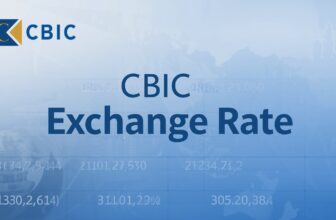
Get an in-depth understanding of forex brokers, the essential catalysts bridging traders to global markets. Discover their role, regulatory nuances, and how they shape the landscape of foreign exchange. Explore the fundamentals of what makes a forex broker a vital companion in navigating international currencies.
A forex broker is a financial intermediary facilitating currency trading, connecting traders to the global foreign exchange market. They enable traders to buy and sell foreign currencies through online platforms, providing access to the global foreign exchange market.
Key Takeaways:
- A forex broker is a crucial link for traders to access the global forex market.
- The forex market is the largest and most liquid asset market in the world.
- Forex brokers provide trading platforms, account management services, and access to liquidity providers.
- Forex trading involves speculating on the value of different currencies.
- Choosing a reputable and regulated forex broker is important for a secure trading experience.
What is a Forex Broker
When it comes to foreign exchange (forex) trading, a crucial player emerges – the forex broker. These financial service providers act as intermediaries, facilitating the buying and selling of foreign currencies for traders. Whether referred to as retail forex brokers or currency trading brokers, their role is pivotal in navigating the complexities of the forex market.
The foreign exchange market, commonly known as forex or FX, is a global marketplace for exchanging national currencies. It is the largest and most liquid asset market, with a daily trading volume reaching $7.5 trillion in 2022 according to the Bank for International Settlements. Forex trading allows individuals and businesses to trade and speculate on the value of different currencies. Forex brokers play a crucial role in facilitating access to the forex market for traders. They provide trading platforms, account management services, and access to liquidity providers. Understanding the role of a forex broker is essential for anyone interested in forex trading.

Understanding the Role of a Forex Broker
Being a participant of the foreign exchange market requires a clear understanding of the pivotal role played by forex brokers. These financial intermediaries serve as gatekeepers, providing traders with the essential tools and platforms needed to engage in currency trading. In the realm of forex, where currencies are bought and sold, brokers act as facilitators, connecting buyers with sellers and vice versa.
Market Access and Financial Instruments Offerings
Forex brokers grant traders access to the global currency market, ensuring they can participate in the 24-hour trading cycle. This access is facilitated through online platforms or voice broking, allowing traders to execute trades seamlessly across various currency pairs. For instance, a trader can easily access and trade the EUR/USD pair, capitalizing on the volatility of these major currencies.
Forex brokers go beyond merely providing access to currencies; they offer a range of financial instruments. These may include non-deliverable spot contracts or derivatives like Contracts for Difference (CFDs). For example, a trader interested in speculating on the price movement of the GBP/JPY pair can use a CFD provided by their broker, allowing them to profit from both rising and falling markets.
Market Accessibility for Retail and Professional Clients
Forex brokers cater to a broad spectrum of clients, ranging from individual retail traders to large financial services firms. Retail traders use the platforms offered by brokers for speculative purposes, while financial services firms execute trades on behalf of institutional clients. This inclusivity underscores the significance of brokers in making the forex market accessible to participants with varying trading needs.
Example Scenario: Consider a retail trader based in London who wishes to trade the AUD/USD currency pair. Through a reputable forex broker, they can
- Access international markets via reputable forex broker
- Analyze market trends
- Execute buy or sell orders
- Profit from AUD/USD currency movements
In essence, this section unveils the multifaceted role of forex brokers – from providing market access to offering diverse financial instruments. Traders rely on these intermediaries to navigate the complexities of the forex market, making informed decisions and executing trades with precision. Understanding the intricacies of this role is fundamental for anyone venturing into the world of currency trading.
Regulatory Foundations and Trade Execution in Forex
When it comes to forex trading, the importance of regulatory oversight cannot be overstated. This section delves into the critical role that regulatory frameworks play in shaping the conduct of forex brokers, ensuring a secure and transparent trading environment.
Understanding Regulatory Significance: Regulation acts as a safeguard, instilling trust and confidence in the integrity of forex brokers. When a broker is properly regulated, traders can be assured that the company adheres to ethical standards and financial regulations. A regulated broker is one that operates within the legal parameters set by the relevant financial authorities.
Key Questions for Assessing Regulation: To determine the trustworthiness of a forex broker, traders should pose essential questions related to regulatory compliance. These may include inquiries about the broker’s financial operating capital, the duration of its operation, and adherence to local laws. For instance, a trader based in the UK should ensure that the chosen broker is regulated by the Financial Conduct Authority (FCA).
Illustrative Example: Consider a scenario where a trader is exploring potential forex brokers. By conducting due diligence, the trader discovers that Broker A is regulated by the FCA in the UK, providing a solid foundation for trust. On the other hand, Broker B lacks proper regulatory licenses and operates in a non-compliant manner. In this scenario, the regulated status of Broker A becomes a decisive factor in the trader’s choice.
Trade Execution and Compliance
Beyond regulatory oversight, the execution of trades is a fundamental aspect of a forex broker’s responsibilities. This section sheds light on how brokers carry out trades, acting either as market makers or as agents, while ensuring compliance with regulatory standards.
Broker Responsibilities in Trade Execution: Forex brokers execute trades on behalf of traders, with two primary methods: market maker execution and agency execution. In market maker execution, the broker acts as the principal to the trade, facilitating it internally. Conversely, in agency execution, the broker sends the trader’s orders to another market. Regardless of the method, adherence to regulatory standards is paramount.
Ensuring Compliance with Regulations: Regulatory compliance extends beyond licensing. Forex brokers must operate in accordance with established laws and guidelines, ensuring fair and transparent trade execution. This compliance is crucial for maintaining the trust of traders and preventing any conflicts of interest that could arise from unscrupulous practices.
Example Scenario: Imagine a trader placing a buy order for the EUR/GBP currency pair. In market maker execution, the broker facilitates the trade internally, quoting the buy and sell prices. On the other hand, in agency execution, the broker sends the order to the broader market for execution. In both cases, a regulated broker ensures that the trade is conducted fairly and in compliance with regulatory standards.
In conclusion, the synergy between regulatory oversight and trade execution forms the bedrock of a trustworthy forex broker. Traders should prioritise brokers with proper regulatory licenses and a commitment to transparent trade execution. This combined focus ensures a secure and compliant trading environment in the ever-evolving world of forex.
Regulatory Guardianship in the Forex Industry
In forex trading, regulatory bodies serve as vigilant guardians, ensuring transparency, fairness, and ethical conduct within the industry. This section delves into the significance of oversight by regulatory bodies, elucidating the roles of institutions such as the Commodity Futures Trading Commission (CFTC) and the National Futures Association (NFA) in safeguarding the interests of traders.
The Role of Regulatory Bodies
Regulatory bodies play a crucial role in upholding the integrity of the forex industry. The Commodity Futures Trading Commission (CFTC) in the United States and the National Futures Association (NFA) are prominent regulatory bodies entrusted with overseeing the conduct of forex brokers. These entities establish and enforce guidelines to prevent fraudulent activities, maintain market stability, and safeguard the rights of traders.
Ensuring Fair Practices
One of the primary objectives of regulatory bodies is to ensure fair practices within the forex market. This includes monitoring the trade execution processes of brokers to prevent market manipulation and ensure that traders are treated equitably. For instance, the NFA, as a self-regulatory organization, sets standards to safeguard the integrity of futures markets.
Maintaining Transparency
Regulatory oversight contributes to market transparency by requiring brokers to provide accurate and timely information to traders. This transparency is crucial for traders to make informed decisions and trust that the market operates with integrity. Brokers regulated by the Financial Conduct Authority (FCA) in the UK, for example, adhere to stringent reporting requirements to maintain transparency.
Example Scenario: Consider a trader exploring forex brokers and finding two options: Broker X, regulated by the CFTC, and Broker Y, operating without regulatory oversight. The trader, aware of the importance of regulatory compliance, chooses Broker X due to the assurance of fair practices and transparency provided by the regulatory body. This example underscores the pivotal role that regulatory bodies play in shaping traders’ choices.
Consumer Protection
Regulatory bodies act as advocates for consumer protection, establishing rules that safeguard traders’ interests. This includes measures to secure clients’ funds and ensure brokers maintain adequate financial operating capital. For instance, brokers regulated by the FCA are obligated to adhere to strict financial standards, offering an additional layer of protection for traders.
Educating Traders
Beyond oversight, regulatory bodies also contribute to the education of traders. They provide resources and information to help traders make informed decisions and navigate the complexities of the forex market. This commitment to education fosters a more knowledgeable and empowered trading community.
It is clear that the oversight by regulatory bodies is the cornerstone of a trustworthy forex industry. Traders are encouraged to choose brokers regulated by reputable bodies to benefit from fair practices, transparency, and consumer protection. The active involvement of regulatory bodies ensures the forex market remains a secure and ethical space for traders to engage in international currency exchanges.
Compensation Models for Forex Brokers
Bid-Ask Spread
Forex brokers are compensated through bid-ask spreads, representing the difference between the buying (ask) and selling (bid) prices. For instance, if the EUR/USD pair is quoted with an ask price of 1.20022 and a bid price of 1.20010, the spread is 1.2 pips. When a retail client opens and later closes a position, the broker collects the spread, contributing to their revenue.
Additional Fees and Trading Costs
In addition to spreads, some brokers charge additional fees, such as transaction fees or monthly charges for specific software interfaces. To remain competitive, many brokers aim to minimise these fees, making trading more cost-effective for retail customers. However, traders must be aware of any additional costs associated with their chosen broker.
The Role of Payment Methods in Forex Trading
In forex trading, the role of payment methods is pivotal, influencing the efficiency, security, and accessibility of financial transactions. This section delves into the significance of payment methods, exploring how they impact the overall trading experience and providing insights into popular choices among traders.
Diverse Payment Methods for Deposits and Withdrawals
Forex brokers offer a range of payment methods to accommodate the diverse preferences of traders. These methods include bank transfers, credit/debit cards, electronic wallets (e-wallets), and increasingly popular options like cryptocurrencies. The availability of multiple payment methods allows traders to choose the one that aligns with their preferences and convenience.
Deposits and Withdrawals
The process of funding a forex trading account and withdrawing profits hinges on the chosen payment method. Traders need reliable and efficient methods to deposit funds swiftly and withdraw profits seamlessly. Each payment method comes with its own set of advantages and considerations, influencing how traders manage their finances in the forex market.
The Rise of E-Wallets and Cryptocurrencies
In recent years, electronic wallets (e-wallets) and cryptocurrencies have gained prominence as preferred payment methods in the forex industry. E-wallets like PayPal, Skrill, and Neteller offer swift transactions and enhanced security, making them popular choices among traders. Cryptocurrencies, such as Bitcoin and Ethereum, provide decentralization and anonymity, appealing to those seeking alternative financial instruments.
Example Scenario: Consider a trader based in the UK who wants to fund their forex trading account. They may opt for a secure and widely accepted method like a bank transfer for large transactions. Alternatively, for smaller transactions, the trader might choose a convenient e-wallet like PayPal, taking advantage of its international presence and currency support. This scenario illustrates the flexibility traders have in selecting payment methods based on their specific needs.
Considerations for Choosing Payment Methods
Traders must consider various factors when choosing a payment method, including transaction fees, processing times, and the level of security provided. Some methods may offer lower fees but longer processing times, while others prioritize instant transactions with slightly higher fees. The choice ultimately depends on the trader’s priorities and preferences.
Researching the Best Payment Methods
To ensure a seamless trading experience, it’s crucial for traders to research and choose the best payment methods supported by their chosen forex broker. For instance, a broker that supports a variety of e-wallets or offers cryptocurrency trading pairs provides added flexibility for traders to manage their funds efficiently.
The role of payment methods in forex trading extends beyond simple transactions; it influences the overall trading experience. Traders should carefully evaluate the available options, considering factors such as speed, security, and convenience. By making informed decisions about payment methods, traders can enhance their financial management capabilities and contribute to a more streamlined and efficient trading journey.
What is a Forex Broker and How Does the Forex Market Work?
The forex market is a decentralized market where currencies are traded electronically over the counter (OTC). Unlike traditional stock exchanges, there is no central marketplace for forex trading. Instead, transactions occur between traders worldwide through computer networks.
The forex market operates 24 hours a day, five and a half days a week, spanning multiple time zones. Currencies are traded in major financial centres such as London, New York, Tokyo, and Sydney.
The forex market consists of two main components: the spot market and the derivatives markets. In the spot market, currencies are bought and sold for immediate delivery. This is known as cash trading, and it accounts for a significant portion of forex trading volume. Derivatives markets, on the other hand, offer various instruments such as forwards, futures, options, and currency swaps. These derivative contracts allow traders to speculate on the future value of currency pairs.
Currency pairs are the primary instruments traded in the forex market. They represent the exchange rates between two currencies. For example, EUR/USD represents the euro against the US dollar. Other popular currency pairs include GBP/USD, USD/JPY, and AUD/USD. Forex brokers provide access to the forex market and allow traders to buy and sell currency pairs through their trading platforms.
| Market Type | Description |
|---|---|
| Spot Market | Immediate buying and selling of currencies for cash delivery. |
| Derivatives Markets | Offer various instruments, such as forwards, futures, options, and currency swaps, for speculating on future currency movements. |
| Currency Pairs | Primary instruments traded in the forex market, representing the exchange rates between two currencies. |
How to Choose a Forex Broker: Factors to Consider
Choosing a forex broker is an important decision for any forex trader. There are several factors to consider when selecting a forex broker. One of the key factors is regulation. It is important to choose a regulated forex broker to ensure the safety of your funds and the integrity of the trading process. Regulatory bodies such as the National Futures Association (NFA) and Commodity Futures Trading Commission (CFTC) in the US, and similar organizations in other countries, oversee forex brokers to ensure compliance with financial regulations.
Additionally, it is crucial to consider the reputation and credibility of a forex broker. Reading forex broker reviews and conducting thorough research can help you identify trusted brokers with a track record of customer satisfaction. This provides valuable insights into the broker’s reliability and the quality of their services.
Another aspect to evaluate is the range of account types offered by the broker. A reliable forex broker should provide different account types to cater to the varying needs and trading strategies of traders. For example, some brokers may offer standard accounts for beginners and professional accounts for experienced traders with additional features and benefits.
Furthermore, the trading platforms and tools offered by a forex broker play a crucial role in enhancing your trading experience. A user-friendly trading platform with advanced features and tools can significantly streamline your trading activities and improve efficiency.
By considering these factors, such as regulation, reputation, account types, and trading platforms, you can make an informed decision when choosing a forex broker that aligns with your trading goals and preferences.
Conclusion
In conclusion, a forex broker plays a crucial role in the world of forex trading. They act as intermediaries, providing traders with access to the forex market and the necessary tools to engage in trading activities.
The forex market, being decentralized, allows for the electronic trading of currencies across the globe. It operates 24 hours a day, creating ample opportunities for traders to participate in the market at their convenience.
When choosing a forex broker, it is important to consider several factors such as regulation, reputation, and available account types. Opting for a regulated and trusted forex broker ensures that traders’ funds are secure and that they have access to reliable trading platforms and resources.
By comprehending the role of a forex broker and understanding the dynamics of the forex market, individuals can make informed decisions when selecting a broker. Ultimately, the right choice can greatly enhance their trading experience and increase the likelihood of achieving success in the forex market.
FAQ
A forex broker is a company or an individual that provides access to the forex market for traders, allowing them to buy and sell currency pairs through their trading platforms.
The forex market is a decentralized market where currencies are traded electronically over the counter (OTC). Unlike traditional stock exchanges, there is no central marketplace. Instead, transactions occur between traders worldwide through computer networks. Currencies are traded in major financial centers such as London, New York, Tokyo, and Sydney.
The forex market consists of spot (cash) and derivatives markets. In the spot market, currencies are bought and sold for immediate delivery, while in the derivatives market, various instruments such as forwards, futures, options, and currency swaps are traded.
Currency pairs are the primary instruments traded in the forex market. They represent the exchange rates between two currencies. For example, EUR/USD represents the euro against the US dollar.
When choosing a forex broker, it is important to consider factors such as regulation, reputation, and credibility of the broker. Reading forex broker reviews and conducting thorough research can help identify trusted brokers. Additionally, consider the types of trading accounts offered and the availability of user-friendly trading platforms and tools.

















